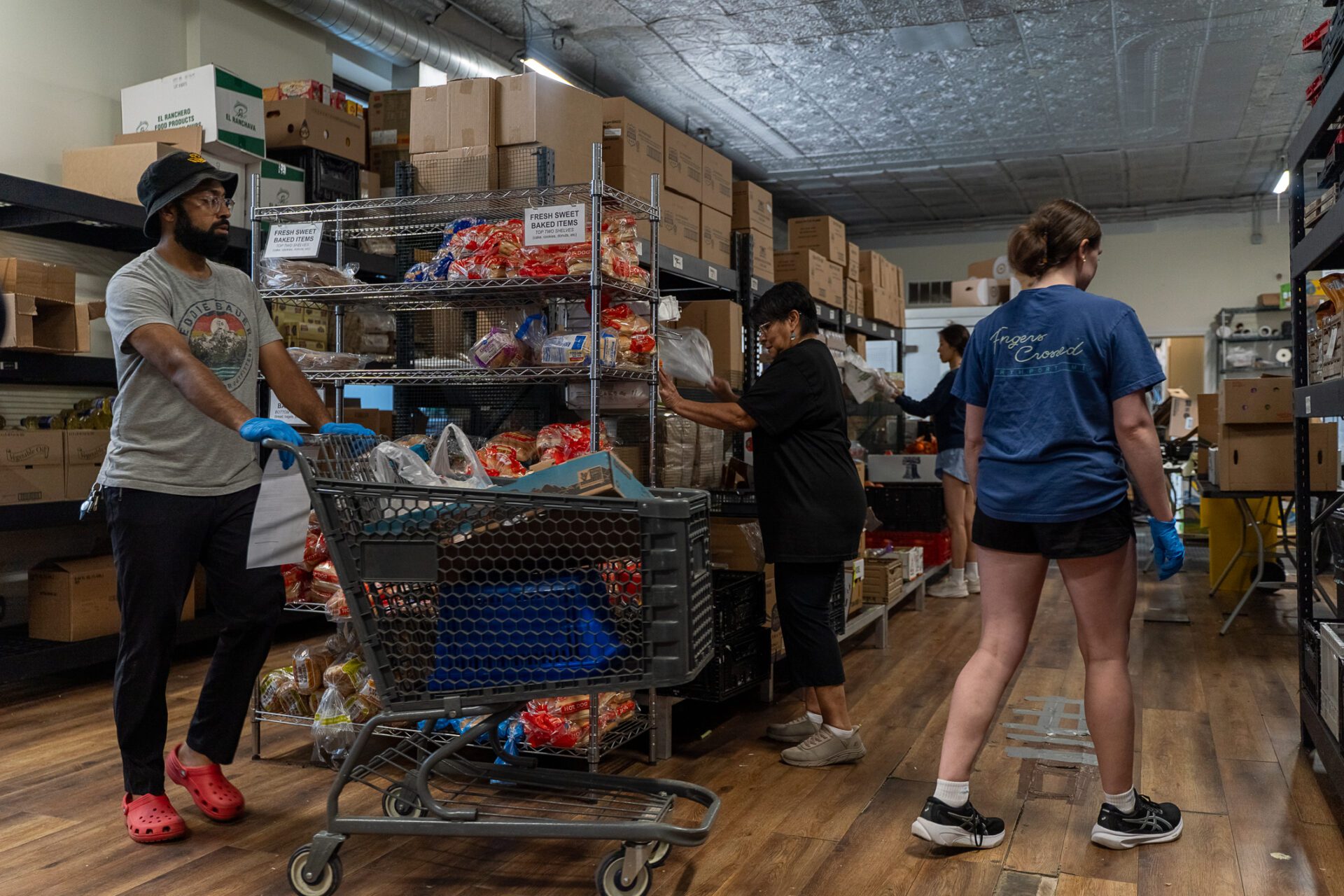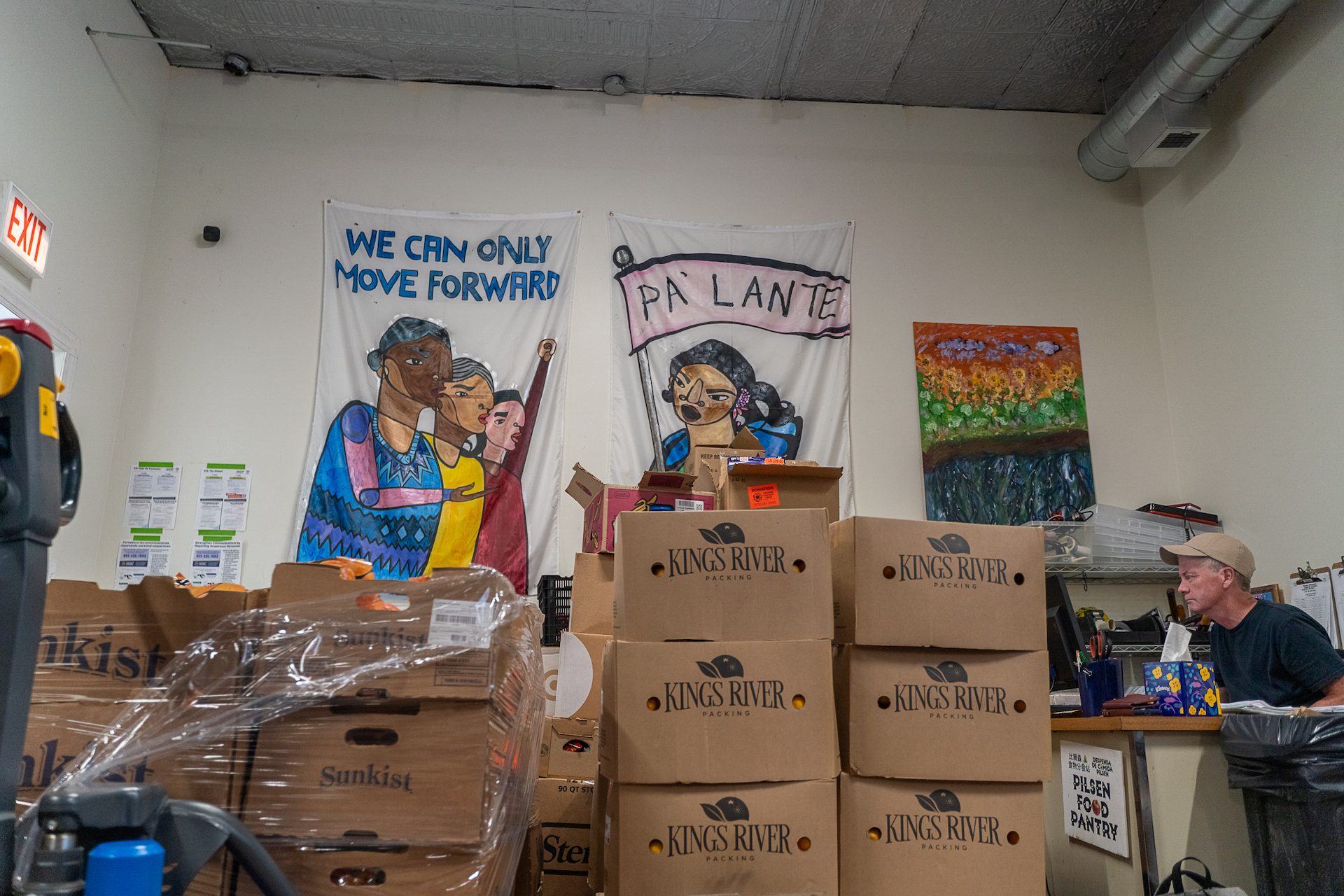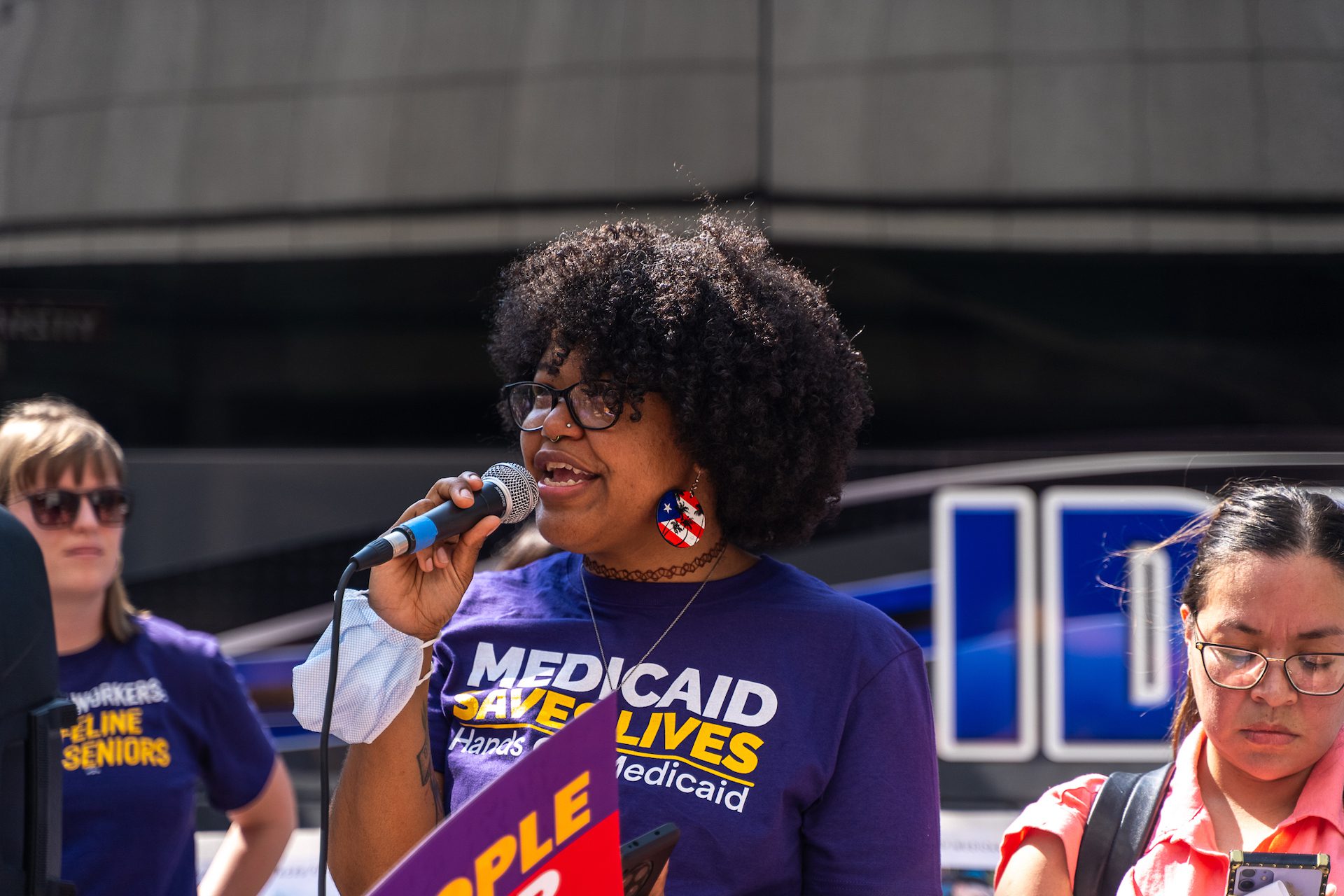 Lucy Baptiste/Borderless Magazine
Lucy Baptiste/Borderless MagazineAs President Trump’s bill is set to cut SNAP and Medicaid benefits, local food pantries prepare for a rise in demand.
Rebekah Mahon’s 12-hour days are filled with worry.
As a single mother working as a personal assistant with the Services Employees International Union (SEIU), Mahon juggles caring for her daughter, managing her work schedule and her mental health.
But since losing Supplemental Nutritional Assistance Program (SNAP), a federal initiative that helps low-income families afford groceries, life has become even more strained.
News that puts power under the spotlight and communities at the center.
Sign up for our free newsletter and get updates twice a week.
She lost her SNAP benefits after exceeding the income limit.
“I’m constantly counting every dollar now,” Mahon said. “It’s exhausting.”
Now, she faces the difficult decision between choosing to purchase food, obtain healthcare or essential mental health services.
Adjusting to life without federal assistance has been difficult, and she recognizes that this is what millions of people will experience as SNAP and Medicaid cuts are set to take effect in the coming years.
President Donald Trump’s One Big Beautiful Bill (OBBB), signed into law on July 4, allocates more funds for Immigration and Customs Enforcement (ICE), while cutting funding for critical benefits for low-income families, including SNAP and Medicaid. The controversial bill has raised significant concerns, with some experts saying the cuts threaten to deepen health and wealth disparities.

Lindsay Allen, a health and Medicaid policy researcher at Northwestern University, noted that immigrants are expected to be the most affected by the changes. She also said that the bill cuts emergency Medicaid care for immigrants, which puts additional strain on state budgets and raises costs for local governments.
Despite the pushback, the Trump administration argues that the measures set in motion by the new law will strengthen the economy and improve health care access in rural areas. In a memo, the White House claims the OBBB will:
- reduce federal Medicaid by nearly $1 trillion over the next decade;
- increase the Child Tax Credit;
- cut $1.5 trillion in government spending;
- implement tax deductions;
- remove Medicaid benefits from noncitizens; and
- provide $50 billion in funding to states through the Rural Health Transformation Program.
According to Allen, the medicaid provisions create new barriers to Medicaid eligibility for those already enrolled, which can make accessing healthcare services more difficult. She warned that immigrants already face language barriers and will be pushed out of the system entirely, overburdened by additional paperwork to resubmit their request for Medicaid and SNAP benefits.
“This will affect those who are working multiple jobs or caregiving, and those who are facing health challenges,” Allen said.
Read More of Our Coverage
An analysis from the Kaiser Family Foundation shows that the new Medicaid eligibility requirements could lead to 2.2 million people losing coverage nationwide, with the largest impact on caregivers and part-time workers who do not receive benefits.
The bill is projected to reduce federal Medicaid by nearly $1 trillion over the next decade, which could significantly impact states like Illinois, where Medicaid expansion has improved access to care, according to experts from the Kaiser Family Foundation.
Nearly 30% of Illinois residents, or 3.4 million people, rely on Medicaid for healthcare coverage. Research shows that many Illinoisans, particularly those under the Affordable Care Act (ACA), could lose their coverage due to new work requirements.
Before the bill’s passage, Gov. J.B. Pritzker and other opponents urged Congress to reject its cuts to SNAP and Medicaid.
“We cannot allow these cuts to harm the most vulnerable in our state,” Pritzker said in a statement earlier this year. “We must continue to fight for the resources our communities need to thrive and ensure that no one is left behind.”
Meanwhile, local organizations are already bracing for impact, scrambling to meet rising demand and fill food gaps ahead of SNAP cuts set to take effect in 2026.
Steve Wiley, manager of Pilsen Food Pantry, has observed an increase in visitors since early this year, a trend he expects to continue.
“A lot of families rely on that little bit of help from SNAP just to get by,” Wiley said. “Without it, we’re expected to see more families come in for food assistance because they simply won’t have enough to make it through the month.”

The pantry serves 35,000 families annually and is now reaching out to local vendors for donations to meet the increased demand. The cuts to the United States Department of Agriculture’s Emergency Food Assistance Program (TFAP) have already affected food deliveries, leaving local food pantries in suburban Oak Park with shortages of essential items like dairy, meats and staples like rice and cooking oil, according to The Wednesday Journal.
Local organizations are also calling for lawmakers to take immediate action, advocating for more funding for food assistance programs and healthcare.
At Pilsen Food Pantry, Wiley has been vocal about the need for policy changes to protect food assistance and healthcare services, speaking out on behalf of working families set to be impacted by the cuts.
“People need to raise their voices,” Wiley said. “The more letters and calls that lawmakers receive, the more likely it is that change will happen.”
For Mahon, she understands some of the hardships that lie ahead.

“Many families depend on that small amount of help from SNAP to make ends meet,” she said.
Still, Mahon said, the collective effort of food pantries and healthcare advocacy groups is essential to promoting stronger protections and preventing greater burdens.
Lucy Baptiste is a Borderless reporting intern. She can be reached at [email protected].


